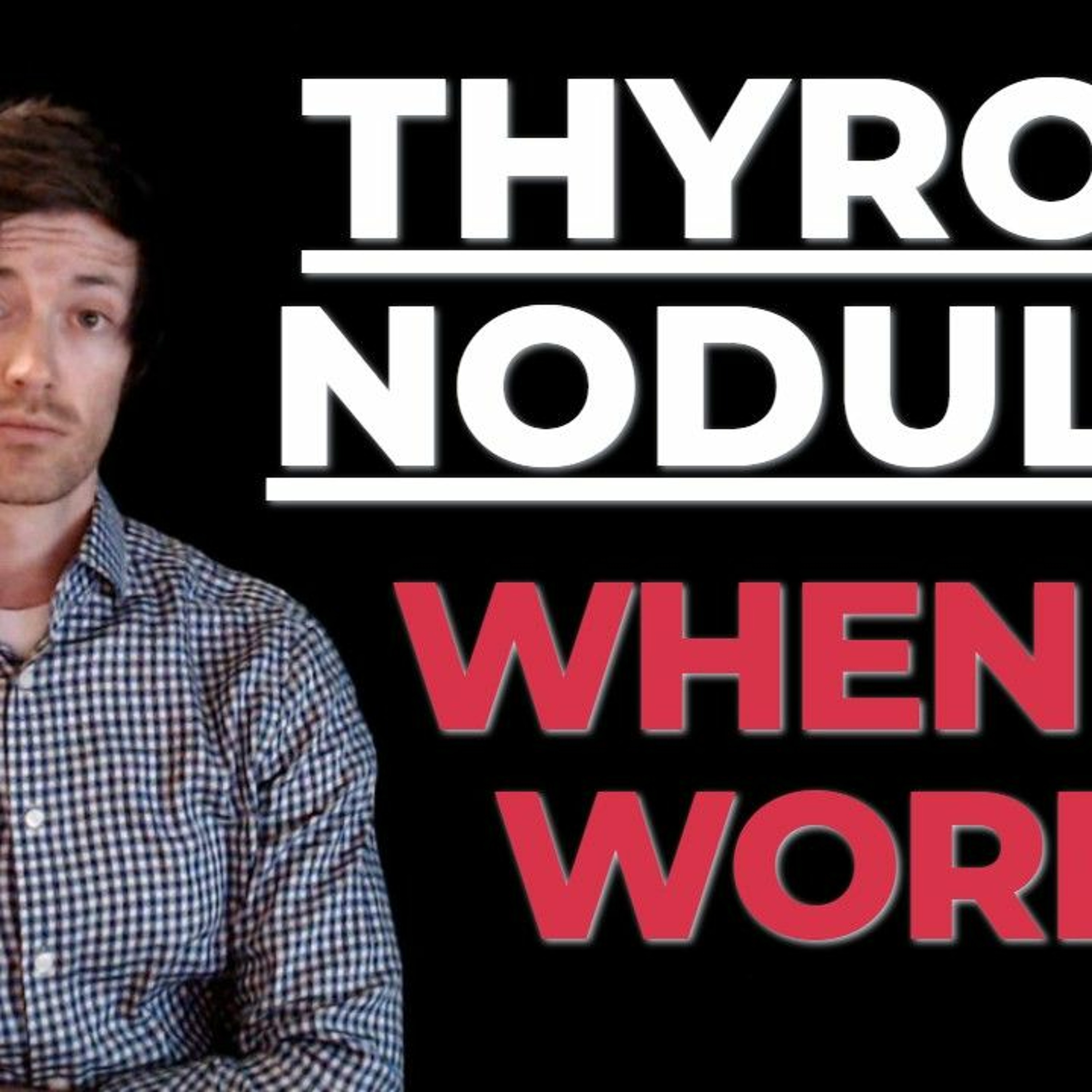

Thyroid Nodules - When to Worry? (Signs your nodule could be something more)
Do you have thyroid nodules? Are you worried that your nodule may be something more than just benign? If so, then this is the video for you.
In this video, I will discuss the warnings signs that may indicate that your thyroid nodule is cancerous. The main thing that people worry about when they have a thyroid nodule is whether or not it is cancerous. And there are certain signs that, if present, can tip you off that your nodule may be something to worry about.
Don't let this scare you though, because most nodules (about 95%) are completely benign and do NOT contain thyroid cancer.
Only a few percentages of all nodules are worrisome for cancer.
Take a look at these symptoms and see if your nodule fits any of these:
Size - The bigger the nodule the more likely you are to have to worry about it. Here we are looking for a nodule which is SMALLER than 2.0 cm in size.
Unexplained weight loss - The unexplained part is important here. You should NOT be losing weight with standard nodules. Unexplained weight loss may be a symptom of cancer.
Difficulty swallowing - If your nodule is big enough it may cause pressure on the esophagus and alter how well you can swallow.
Voice changes or hoarseness - If your nodule is big enough it may impact your vocal cords and change your voice. This is a problem if it occurs.
Neck pain - Nodules that cause neck pain are definitely abnormal. Most nodules do NOT cause neck pain.
Enlarged lymph nodes - If you notice enlarged lymph nodes that is a warning sign. Regular nodules should not impact your lymph nodes.
Hypothyroid or hyperthyroid symptoms - MOST nodules do not impact your thyroid function even though they are in your thyroid gland.
Your age - Nodules are more concerning if you are younger than 20 years old or older than 70 years old. If you are in between then there is much less risk your nodule is cancerous.
If you find that you have any of these warning signs then it may be time to get an ultrasound which can give you more information. If the ultrasound comes back abnormal then your next step is to get a fine needle aspiration (or FNA) of the nodule.
In this video, I will discuss the warnings signs that may indicate that your thyroid nodule is cancerous. The main thing that people worry about when they have a thyroid nodule is whether or not it is cancerous. And there are certain signs that, if present, can tip you off that your nodule may be something to worry about.
Don't let this scare you though, because most nodules (about 95%) are completely benign and do NOT contain thyroid cancer.
Only a few percentages of all nodules are worrisome for cancer.
Take a look at these symptoms and see if your nodule fits any of these:
Size - The bigger the nodule the more likely you are to have to worry about it. Here we are looking for a nodule which is SMALLER than 2.0 cm in size.
Unexplained weight loss - The unexplained part is important here. You should NOT be losing weight with standard nodules. Unexplained weight loss may be a symptom of cancer.
Difficulty swallowing - If your nodule is big enough it may cause pressure on the esophagus and alter how well you can swallow.
Voice changes or hoarseness - If your nodule is big enough it may impact your vocal cords and change your voice. This is a problem if it occurs.
Neck pain - Nodules that cause neck pain are definitely abnormal. Most nodules do NOT cause neck pain.
Enlarged lymph nodes - If you notice enlarged lymph nodes that is a warning sign. Regular nodules should not impact your lymph nodes.
Hypothyroid or hyperthyroid symptoms - MOST nodules do not impact your thyroid function even though they are in your thyroid gland.
Your age - Nodules are more concerning if you are younger than 20 years old or older than 70 years old. If you are in between then there is much less risk your nodule is cancerous.
If you find that you have any of these warning signs then it may be time to get an ultrasound which can give you more information. If the ultrasound comes back abnormal then your next step is to get a fine needle aspiration (or FNA) of the nodule.
Activity